This repository hosts a refined implementation of Schnorr's Protocol, innovatively incorporating a state seed for enhanced security measures. While the underlying proofs may appear intricate, I aim to elucidate their functionality to the best of my ability. However, for a deeper understanding, I encourage referencing the seminal research papers underpinning this implementation, as they offer comprehensive insights.
For further exploration:
Additionally, this repository delves into the concepts of "Zero-Knowledge" Proofs (ZKPs) and Hash-based Message Authentication Codes (HMACs). ZKPs are cryptographic protocols that allow one party (the prover) to prove to another party (the verifier) that a given statement is true, without revealing any additional information beyond the validity of the statement itself. This property is particularly valuable for preserving privacy while establishing trust.
On the other hand, HMACs are a type of cryptographic hash function used for message authentication. They involve a cryptographic hash function (such as SHA-256) and a secret cryptographic key. HMACs provide a way to verify both the data integrity and the authenticity of a message, ensuring that it has not been altered or tampered with during transmission and that it indeed originates from the purported sender.
In today's rapidly evolving IT and application development landscape, "Zero-Knowledge" Proofs (ZKPs) emerge as a pivotal paradigm for authentication security. Their capacity to affirm the validity of a claim, such as proving possession of a secret password — without revealing any sensitive information about the claim itself, such as passwords or hashes, revolutionizes the assurance of secure AAA operations (authentication, authorization, and accounting).
zk-Call & Labs represents an implementation of a Non-Interactive "Zero-Knowledge" Proof (NIZKP) protocol tailored specifically for validating text-based secrets. This framework proves invaluable for safeguarding passwords and other authentication mechanisms, ensuring robust security measures without compromising privacy. Additionally, the integration of HMAC (Hash-Based Message Authentication Code) further fortifies the authentication process, enhancing data integrity and thwarting potential security breaches.
The authentication protocol employed in this system operates based on two fundamental concepts:
"Zero-Knowledge" Proofs (ZKPs) and Hash-Based Message Authentication Code (HMAC). Let's delve into each of these components and understand how they synergize to ensure secure authentication in messaging applications.
ZKPs form the bedrock of privacy-preserving authentication mechanisms. These proofs allow one party (the prover) to demonstrate the validity of a claim to another party (the verifier) without revealing any additional information beyond the claim's validity. In essence, ZKPs enable authentication without the need for the prover to disclose sensitive data, such as passwords or cryptographic keys.
In the context of messaging applications, ZKPs play a pivotal role in verifying a user's identity without the need to transmit explicit credentials over the network. Instead, users can generate cryptographic proofs attesting to their identity or possession of certain credentials without exposing those credentials themselves. This ensures that sensitive information remains confidential during the authentication process, bolstering security and privacy.
HMAC provides a robust mechanism for verifying the integrity and authenticity of messages exchanged between parties. It involves the use of a cryptographic hash function in conjunction with a secret key to generate a unique code (the HMAC) for each message. This code serves as a digital signature, allowing the recipient to verify that the message has not been tampered with or altered during transmission.
In messaging applications, HMAC can be employed to authenticate message senders and ensure the integrity of communication channels. By appending an HMAC to each message using a shared secret key, both the sender and recipient can validate the message's authenticity upon receipt. Any unauthorized modifications to the message would result in a mismatch between the computed HMAC and the received HMAC, thereby alerting the recipient to potential tampering.
When combined, "Zero-Knowledge" Proofs and HMAC create a formidable framework for secure authentication in messaging applications. ZKPs facilitate identity verification without divulging sensitive information, while HMAC ensures the integrity and authenticity of messages exchanged between parties. Together, these mechanisms uphold the confidentiality, integrity, and authenticity of communication channels, safeguarding users' privacy and security in the digital realm.
The "Zero-Knowledge" Go API is meant to be simple and intuitive:
The Core Components are key for establishing a secure and efficient framework for cryptographic protocols;
streamlining the creation and validation of "Zero-Knowledge" Proofs (ZKPs). They enhance anonymous, data-safe proof
validations.
The parameters used to initialize the "Zero-Knowledge" crypto system.
struct ZeroKnowledgeParams():
"""
Parameters used to construct a Zero-Knowledge Proof state, utilizing an elliptic curve and a random salt
"""
algorithm: string # Hashing algorithm name
curve: string # Standard Elliptic Curve name to use
s: []byte # Random salt for the state
A cryptographic "Zero-Knowledge" signature that can be used to verify future messages.
struct ZeroKnowledgeSignature():
"""
Cryptographic public signature designed to verify future messages
"""
params: ZeroKnowledgeParams # Reference ZeroKnowledge Parameters
signature: []byte # The public key derived from your original secret
A cryptographic proof that can be verified against a signature.
struct ZeroKnowledgeProof(NamedTuple):
"""
Non-deterministic cryptographic Zero-Knowledge Proof designed to confirm that the
private key creating the proof matches the key used to generate the signature
"""
params: ZeroKnowledgeParams # Reference ZeroKnowledge Parameters
c: []byte # The hash of the signed data and random point, R
m: []byte # The offset from the secret `r` (`R=r*g`) from c * Hash(secret)
Wrapper that contains a proof and the necessary data to validate the proof against a signature.
class ZeroKnowledgeData(NamedTuple):
"""
Wrapper designed to hold data along with its corresponding signed proof
"""
data: string
proof: ZeroKnowledgeProof
The ZeroKnowledge class is the central component of ZeroKnowledge and its state (defined by ZeroKnowledgeParams) should be inherently known to both the Client (Prover) and Server (Verifier).
| Method | Params | Role | Purpose |
|---|---|---|---|
CreateSignature |
secret: []byte |
Prover | Create a cryptographic signature derived from the value secret to be generated during initial registration and stored for subsequent challenge proofs. |
sign |
secret: []byte data: interface{} |
Prover | Create a ZeroKnowledgeData object using the secret and any additional data.
|
verify |
challenge: interface{} signature: ZeroKnowledgeSignature data: Optional[Union[str, bytes, int]] |
Verifier | Verify the user-provided challenge against the stored signature and randomly generated token to verify the validity of the challenge. |
TODO: Include Example Usage
package main // Declares that this file is part of the main package
import (
"fmt" // Import the "fmt" package for formatted I/O
"sync" // Import the "sync" package for synchronization primitives
HMAC_env "tmp/src/HMAC/core" // Import the HMAC core package and alias it as "HMAC_env"
seed_env "tmp/src/SeedGeneration/core" // Import the SeedGeneration core package and alias it as "seed_env"
)
var DEBUG = true // Define a global variable DEBUG and set it to true
func printMsg(who string, message string) { // Define a function named printMsg that takes two string parameters
if DEBUG { // If DEBUG is true, execute the following block
fmt.Printf("[%s] %s\n", who, message) // Print a formatted message to standard output
}
}
func client(clientSocket chan string, serverSocket chan string, wg *sync.WaitGroup) { // Define a function named client with three parameters
defer wg.Done() // Decrement the WaitGroup counter when this function exits
// Generating the main seed
mainSeed := seed_env.NewSeedGenerator("jack").Generate() // Generate a main seed using the SeedGenerator with a specified username
obj := HMAC_env.NewHMACClient("sha256", mainSeed, 1) // Create a new HMACClient object with SHA-256 hash algorithm, main seed, and iteration count
obj.InitDecryptDict() // Initialize the decryption dictionary for the HMACClient
// Sending the main seed to the server through the serverSocket channel
serverSocket <- string(mainSeed) // Convert the main seed to a string and send it to the serverSocket channel
// Checking if the server has successfully received the seed
if <-clientSocket == obj.EncryptMessage("") { // Wait for a response from the server via the clientSocket channel and compare it with an encrypted empty message
// If successful, send a message to the server
message := "hello" // Define a message to send to the server
serverSocket <- obj.EncryptMessageByChunks(message) // Encrypt and send the message to the server through the serverSocket channel
printMsg("client", fmt.Sprintf("client sent message %s", message)) // Print a message indicating that the client has sent a message
// Checking if the server has successfully decrypted the message
if <-clientSocket == obj.EncryptMessage(message) { // Wait for a response from the server via the clientSocket channel and compare it with the encrypted message
printMsg("client", "server has decrypt message") // If the message matches, print a message indicating that the server has decrypted the message
}
}
}
func server(serverSocket chan string, clientSocket chan string, wg *sync.WaitGroup) { // Define a function named server with three parameters
defer wg.Done() // Decrement the WaitGroup counter when this function exits
// Receiving the main seed from the client through the serverSocket channel
mainSeed := <-serverSocket // Receive the main seed from the client via the serverSocket channel
// Create a new HMACClient object with SHA-256 hash algorithm, received main seed, and iteration count
obj := HMAC_env.NewHMACClient("sha256", []byte(mainSeed), 1)
obj.InitDecryptDict() // Initialize the decryption dictionary for the HMACClient
// Sending an empty message to the client as acknowledgment
clientSocket <- obj.EncryptMessage("") // Encrypt and send an empty message to the client through the clientSocket channel
// Receiving the message from the client through the serverSocket channel
client_mes := <-serverSocket // Receive the encrypted message from the client via the serverSocket channel
printMsg("server", fmt.Sprintf("msg encrypted %s", client_mes)) // Print a message indicating the encrypted message received
// Decrypt the received message by chunks
msg := obj.DecryptMessageByChunks(client_mes) // Decrypt the received message by chunks
printMsg("server", fmt.Sprintf("msg decrypted %s", msg)) // Print a message indicating the decrypted message
// Sending the decrypted message back to the client through the clientSocket channel
clientSocket <- obj.EncryptMessageByChunks(msg) // Encrypt and send the decrypted message back to the client
}
func main() { // The entry point of the program
clientSocket := make(chan string) // Create an unbuffered channel of string type named clientSocket
serverSocket := make(chan string) // Create an unbuffered channel of string type named serverSocket
var wg sync.WaitGroup // Declare a WaitGroup variable named wg
wg.Add(2) // Increment the WaitGroup counter by 2
go func() { // Start a new goroutine
defer close(clientSocket) // Close the clientSocket channel when this goroutine finishes
defer close(serverSocket) // Close the serverSocket channel when this goroutine finishes
wg.Wait() // Wait until the WaitGroup counter becomes zero
}()
go client(clientSocket, serverSocket, &wg) // Start a new goroutine for the client function
go server(serverSocket, clientSocket, &wg) // Start a new goroutine for the server function
wg.Wait() // Wait until all goroutines are finished
}
package main // Declares that this file is part of the main package
import (
"fmt" // Import the "fmt" package for formatted I/O
"sync" // Import the "sync" package for synchronization primitives
zkx "tmp/src/ZeroKnowledge/core" // Import the ZeroKnowledge core package and alias it as "zkx"
zkx_models "tmp/src/ZeroKnowledge/models" // Import the ZeroKnowledge models package and alias it as "zkx_models"
)
var DEBUG = true // Define a global variable DEBUG and set it to true
func printMsg(who string, message string) { // Define a function named printMsg that takes two string parameters
if DEBUG { // If DEBUG is true, execute the following block
fmt.Printf("[%s] %s\n", who, message) // Print a formatted message to standard output
}
}
func client(clientSocket chan string, serverSocket chan string, wg *sync.WaitGroup) { // Define a function named client with three parameters
defer wg.Done() // Decrement the WaitGroup counter when this function exits
// Create a ZeroKnowledge object for the client with specified curve and hash algorithm
clientObject := zkx.New("Ed25519", "blake2b", nil, "HB2B", 16)
// Generate a signature for the client identity
identity := "John"
signature := clientObject.CreateSignature(identity)
// Send the signature to the server through the serverSocket channel
serverSocket <- zkx_models.ZeroKnowledgeSignature.ToJSON(signature)
printMsg("client", fmt.Sprintf("Sent signature: %s", zkx_models.ZeroKnowledgeSignature.ToJSON()))
// Receive token from the server through the clientSocket channel
token := <-clientSocket
printMsg("client", fmt.Sprintf("Received token: %s", token))
// Generate a proof using client identity and token
proof := zkx_models.ZeroKnowledgeSignature.ToJSON(clientObject.Sign(identity, token))
printMsg("client", fmt.Sprintf("Proof: %s", proof))
// Send proof to the server through the serverSocket channel
serverSocket <- proof
// Receive result from the server through the clientSocket channel
result := <-clientSocket
printMsg("client", fmt.Sprintf("Result: %s", result))
}
func server(serverSocket chan string, clientSocket chan string, wg *sync.WaitGroup) { // Define a function named server with three parameters
defer wg.Done() // Decrement the WaitGroup counter when this function exits
// Set the server password
serverPassword := "SecretServerPassword"
// Create a ZeroKnowledge object for the server with specified curve and hash algorithm
serverZK := zkx.New("Ed25519", "blake2b", nil, "HB2B", 16)
// Receive client signature from the client through the serverSocket channel
clientSig := <-serverSocket
clientSignature := zkx_models.ZeroKnowledgeSignature.FromJSON(clientSig)
printMsg("server", fmt.Sprintf("Received client signature: %s", clientSignature)
// Generate a token signed by the server for the client
token := serverZK.Sign(serverPassword, zkx.Token(serverZK))
printMsg("server", fmt.Sprintf("Generated token: %s", token))
// Send the token to the client through the clientSocket channel
clientSocket <- zkx_models.ZeroKnowledgeData.ToJSON(token)
// Receive proof from the client through the serverSocket channel
proof := <-serverSocket
clientProof := zkx_models.ZeroKnowledgeData.FromJSON(proof)
printMsg("server", fmt.Sprintf("Received proof: %s", proof))
// Verify the received proof
tokenData := zkx_models.ZeroKnowledgeData.FromJSON(clientProof.Data)
serverVerification := serverZK.Verify(tokenData, clientSignature)
printMsg("server", fmt.Sprintf("Server verification result: %t", serverVerification))
// If server verification fails, notify the client through the clientSocket channel
if !serverVerification {
clientSocket <- "Server verification failed"
} else {
// Otherwise, verify the proof using client signature
clientVerification := clientSignature.Verify(clientProof, tokenData)
printMsg("server", fmt.Sprintf("Client verification result: %t", clientVerification))
if clientVerification {
clientSocket <- "Verification successful"
} else {
clientSocket <- "Verification failed"
}
}
}
func main() { // Entry point of the program
clientSocket := make(chan string) // Create a unbuffered channel of string type named clientSocket
serverSocket := make(chan string) // Create a unbuffered channel of string type named serverSocket
var wg sync.WaitGroup // Declare a WaitGroup variable named wg
wg.Add(2) // Increment the WaitGroup counter by 2
go func() { // Start a new goroutine
defer close(clientSocket) // Close the clientSocket channel when this goroutine finishes
defer close(serverSocket) // Close the serverSocket channel when this goroutine finishes
wg.Wait() // Wait until the WaitGroup counter becomes zero
}()
go client(clientSocket, serverSocket, &wg) // Start a new goroutine for the client function
go server(serverSocket, clientSocket, &wg) // Start a new goroutine for the server function
wg.Wait() // Wait until all goroutines are finished
}
package main // Declares that this file is part of the main package
import (
"fmt" // Import the "fmt" package for formatted I/O
"sync" // Import the "sync" package for synchronization primitives
HMAC_env "tmp/src/HMAC/core"
seed_env "tmp/src/SeedGeneration/core"
zkx "tmp/src/ZeroKnowledge/core" // Import the ZeroKnowledge core package and alias it as "zkx"
zkx_models "tmp/src/ZeroKnowledge/models" // Import the ZeroKnowledge models package and alias it as "zkx_models"
)
var DEBUG = true // Define a global variable DEBUG and set it to true
func printMsg(who string, message string) { // Define a function named printMsg that takes two string parameters
if DEBUG { // If DEBUG is true, execute the following block
fmt.Printf("[%s] %s\n", who, message) // Print a formatted message to standard output
}
}
func client(clientSocket chan string, serverSocket chan string, wg *sync.WaitGroup) { // Define a function named client with three parameters
defer wg.Done() // Decrement the WaitGroup counter when this function exits
// Create a ZeroKnowledge object for the client with specified curve and hash algorithm
clientObject := zkx.New("Ed25519", "blake2b", nil, "HB2B", 16)
// Generate a signature for the client identity
identity := "John"
signature := clientObject.CreateSignature(identity)
// Send the signature to the server through the serverSocket channel
serverSocket <- zkx_models.ZeroKnowledgeSignature.ToJSON(signature)
printMsg("client", fmt.Sprintf("Sent signature: %s", zkx_models.ZeroKnowledgeSignature.ToJSON()))
// Receive token from the server through the clientSocket channel
token := <-clientSocket
printMsg("client", fmt.Sprintf("Received token: %s", token))
// Generate a proof using client identity and token
proof := zkx_models.ZeroKnowledgeSignature.ToJSON(clientObject.Sign(identity, token))
printMsg("client", fmt.Sprintf("Proof: %s", proof))
// Send proof to the server through the serverSocket channel
serverSocket <- proof
// Receive result from the server through the clientSocket channel
result := <-clientSocket
printMsg("client", fmt.Sprintf("Result: %s", result))
if result {
mainSeed := seed_env.NewSeedGenerator("jack").Generate() // Generate a main seed using the SeedGenerator with a specified username
obj := HMAC_env.NewHMACClient("sha256", mainSeed, 1) // Create a new HMACClient object with SHA-256 hash algorithm, main seed, and iteration count
obj.InitDecryptDict() // Initialize the decryption dictionary for the HMACClient
// Sending the main seed to the server through the serverSocket channel
serverSocket <- string(mainSeed) // Convert the main seed to a string and send it to the serverSocket channel
// Checking if the server has successfully received the seed
if <-clientSocket == obj.EncryptMessage("") { // Wait for a response from the server via the clientSocket channel and compare it with an encrypted empty message
// If successful, send a message to the server
message := "hello" // Define a message to send to the server
serverSocket <- obj.EncryptMessageByChunks(message) // Encrypt and send the message to the server through the serverSocket channel
printMsg("client", fmt.Sprintf("client sent message %s", message)) // Print a message indicating that the client has sent a message
// Checking if the server has successfully decrypted the message
if <-clientSocket == obj.EncryptMessage(message) { // Wait for a response from the server via the clientSocket channel and compare it with the encrypted message
printMsg("client", "server has decrypt message") // If the message matches, print a message indicating that the server has decrypted the message
}
}
}
}
func server(serverSocket chan string, clientSocket chan string, wg *sync.WaitGroup) { // Define a function named server with three parameters
defer wg.Done() // Decrement the WaitGroup counter when this function exits
// Set the server password
serverPassword := "SecretServerPassword"
// Create a ZeroKnowledge object for the server with specified curve and hash algorithm
serverZK := zkx.New("Ed25519", "blake2b", nil, "HB2B", 16)
// Receive client signature from the client through the serverSocket channel
clientSig := <-serverSocket
clientSignature := zkx_models.ZeroKnowledgeSignature.FromJSON(clientSig)
printMsg("server", fmt.Sprintf("Received client signature: %s", clientSignature)
// Generate a token signed by the server for the client
token := serverZK.Sign(serverPassword, zkx.Token(serverZK))
printMsg("server", fmt.Sprintf("Generated token: %s", token))
// Send the token to the client through the clientSocket channel
clientSocket <- zkx_models.ZeroKnowledgeData.ToJSON(token)
// Receive proof from the client through the serverSocket channel
proof := <-serverSocket
clientProof := zkx_models.ZeroKnowledgeData.FromJSON(proof)
printMsg("server", fmt.Sprintf("Received proof: %s", proof))
// Verify the received proof
tokenData := zkx_models.ZeroKnowledgeData.FromJSON(clientProof.Data)
serverVerification := serverZK.Verify(tokenData, clientSignature)
printMsg("server", fmt.Sprintf("Server verification result: %t", serverVerification))
// If server verification fails, notify the client through the clientSocket channel
if !serverVerification {
clientSocket <- "Server verification failed"
} else {
// Otherwise, verify the proof using client signature
clientVerification := clientSignature.Verify(clientProof, tokenData)
printMsg("server", fmt.Sprintf("Client verification result: %t", clientVerification))
if clientVerification {
clientSocket <- "Verification successful"
mainSeed := <-serverSocket // Receive the main seed from the client via the serverSocket channel
// Create a new HMACClient object with SHA-256 hash algorithm, received main seed, and iteration count
obj := HMAC_env.NewHMACClient("sha256", []byte(mainSeed), 1)
obj.InitDecryptDict() // Initialize the decryption dictionary for the HMACClient
// Sending an empty message to the client as acknowledgment
clientSocket <- obj.EncryptMessage("") // Encrypt and send an empty message to the client through the clientSocket channel
// Receiving the message from the client through the serverSocket channel
client_mes := <-serverSocket // Receive the encrypted message from the client via the serverSocket channel
printMsg("server", fmt.Sprintf("msg encrypted %s", client_mes)) // Print a message indicating the encrypted message received
// Decrypt the received message by chunks
msg := obj.DecryptMessageByChunks(client_mes) // Decrypt the received message by chunks
printMsg("server", fmt.Sprintf("msg decrypted %s", msg)) // Print a message indicating the decrypted message
// Sending the decrypted message back to the client through the clientSocket channel
clientSocket <- obj.EncryptMessageByChunks(msg) // Encrypt and send the decrypted message back to the client
} else {
clientSocket <- "Verification failed"
}
}
}
func main() { // Entry point of the program
clientSocket := make(chan string) // Create a unbuffered channel of string type named clientSocket
serverSocket := make(chan string) // Create a unbuffered channel of string type named serverSocket
var wg sync.WaitGroup // Declare a WaitGroup variable named wg
wg.Add(2) // Increment the WaitGroup counter by 2
go func() { // Start a new goroutine
defer close(clientSocket) // Close the clientSocket channel when this goroutine finishes
defer close(serverSocket) // Close the serverSocket channel when this goroutine finishes
wg.Wait() // Wait until the WaitGroup counter becomes zero
}()
go client(clientSocket, serverSocket, &wg) // Start a new goroutine for the client function
go server(serverSocket, clientSocket, &wg) // Start a new goroutine for the server function
wg.Wait() // Wait until all goroutines are finished
}
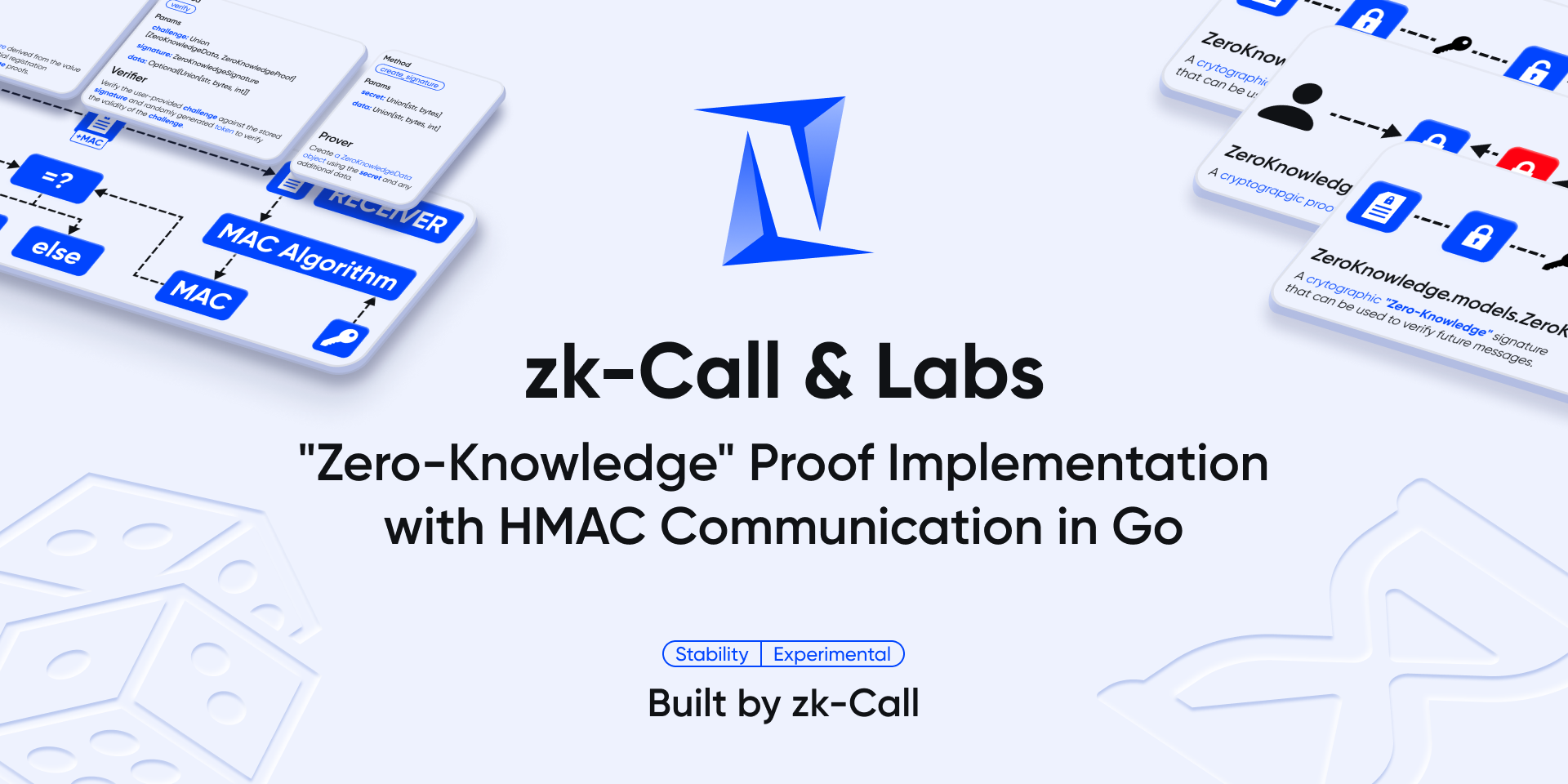
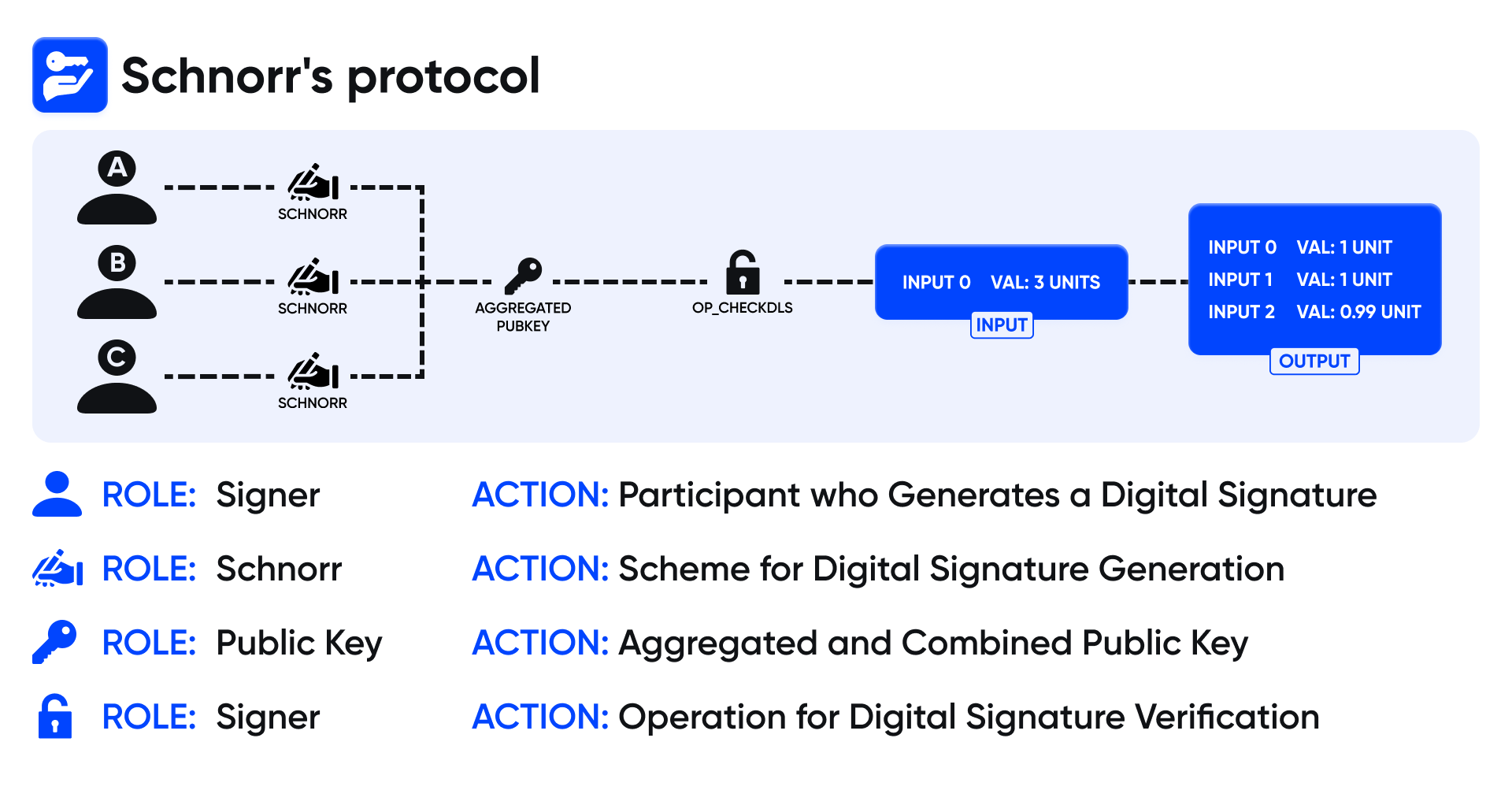
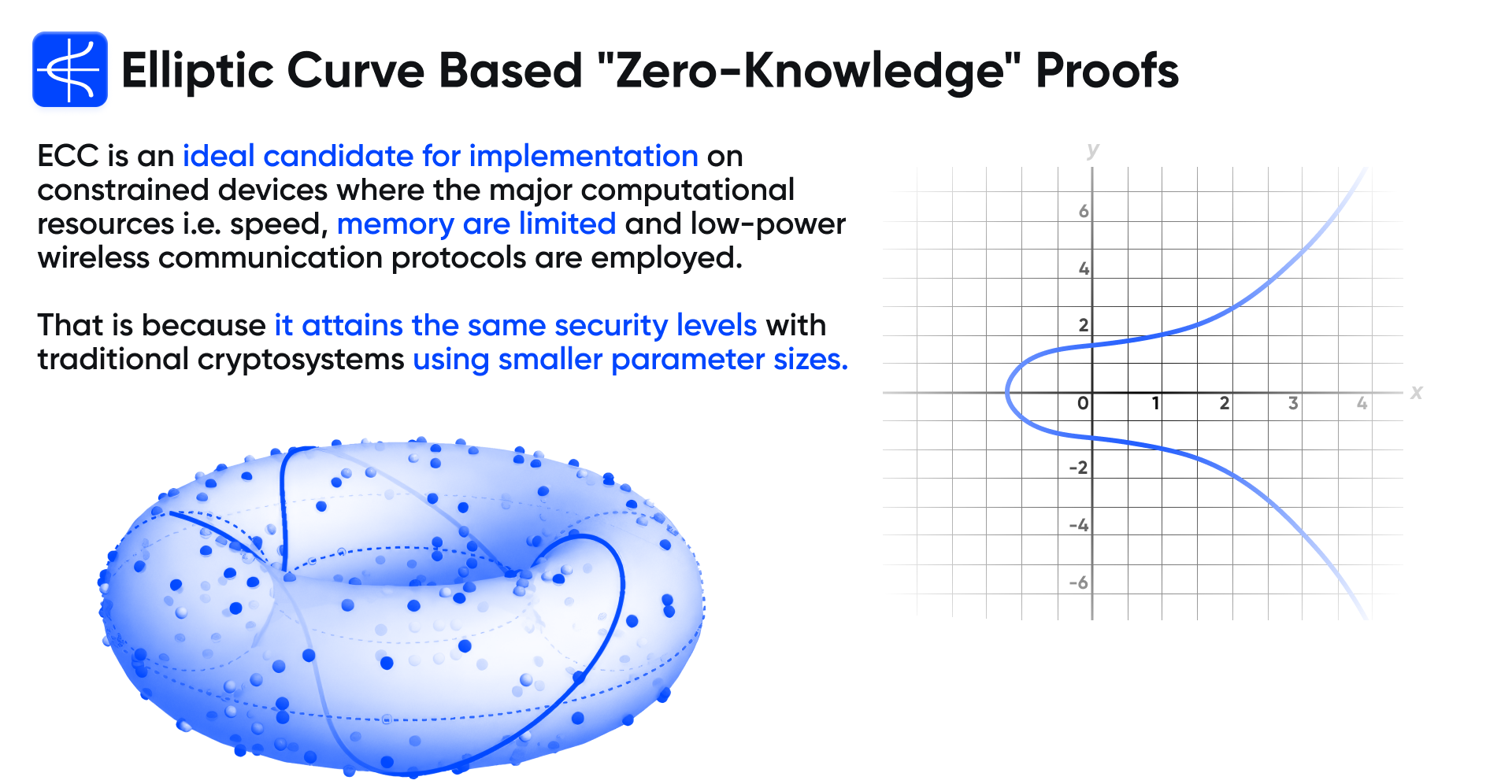
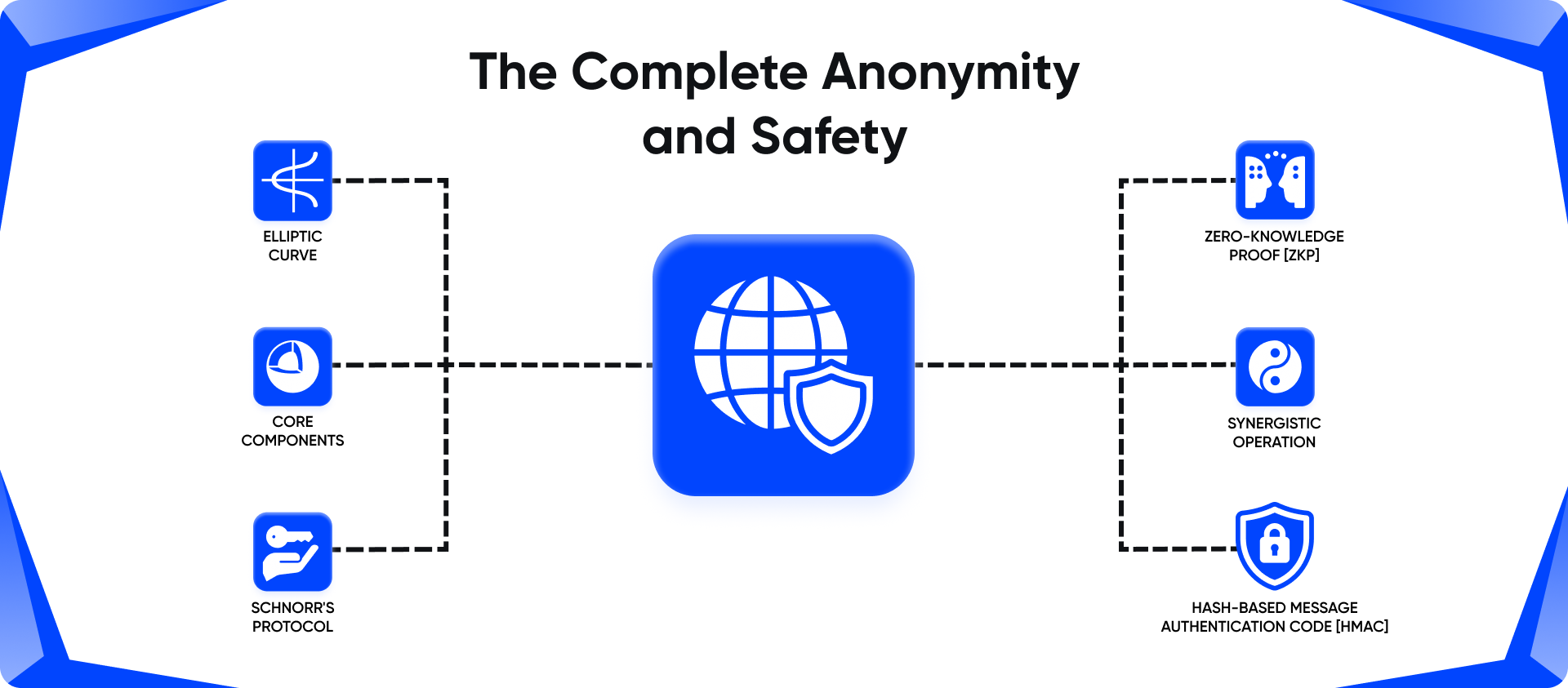




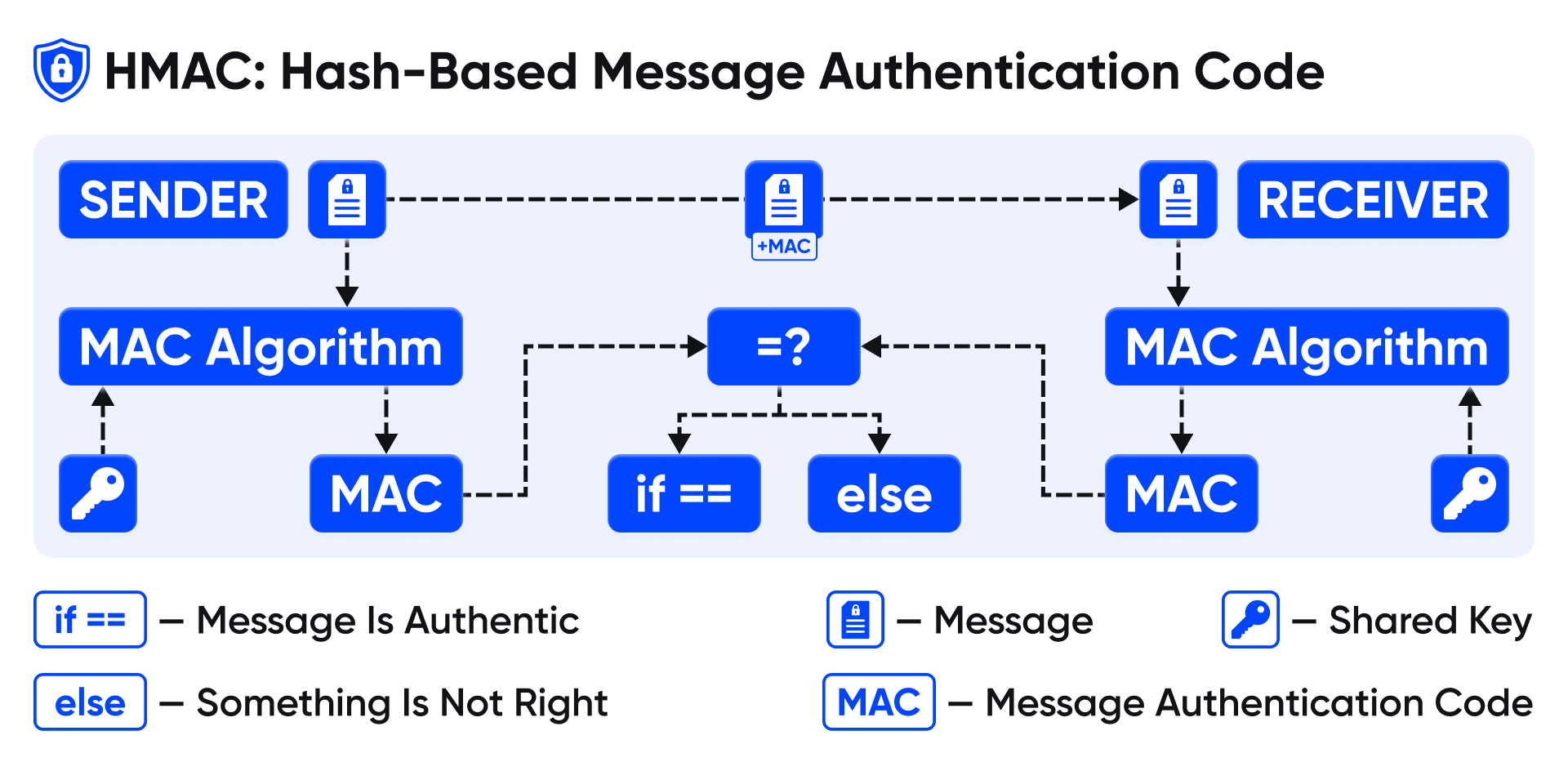
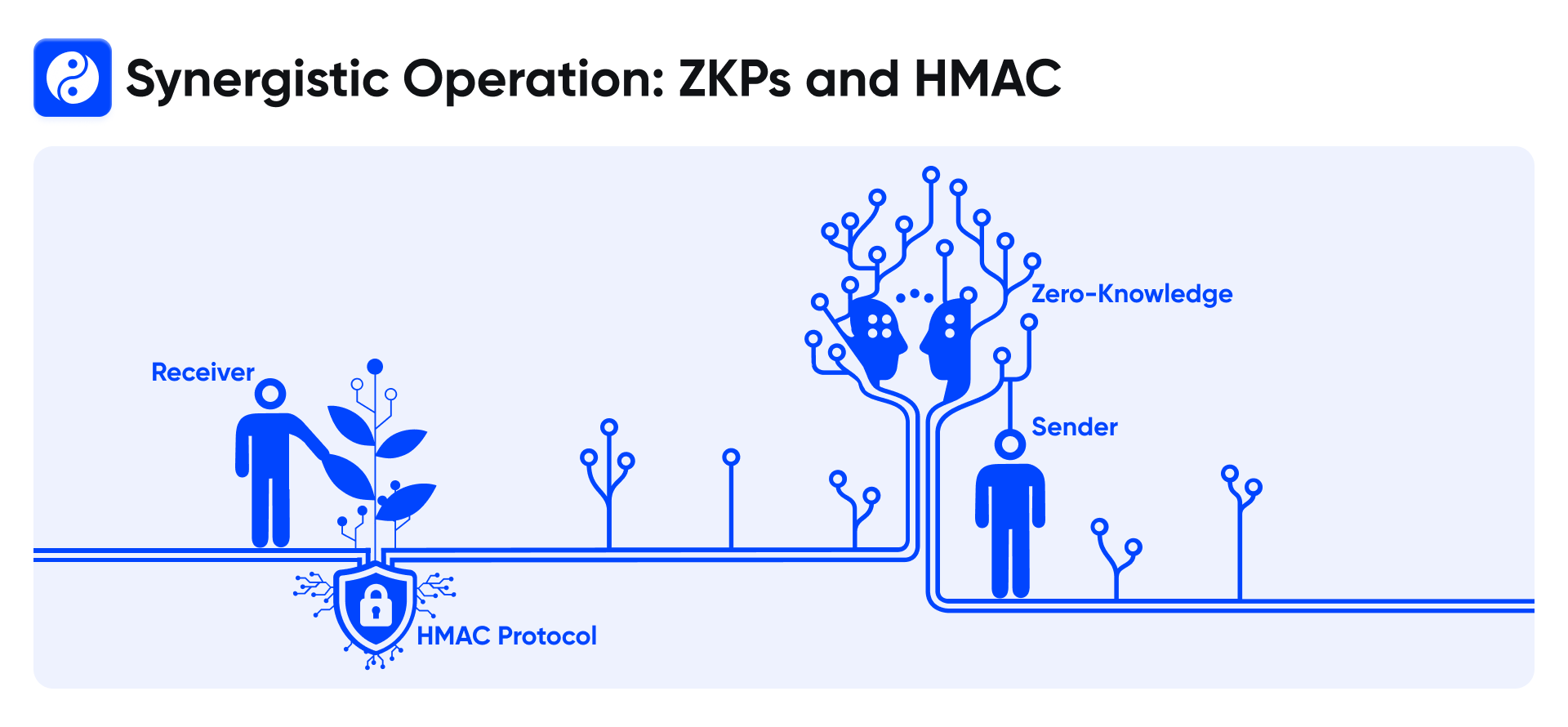
.png)
.png)